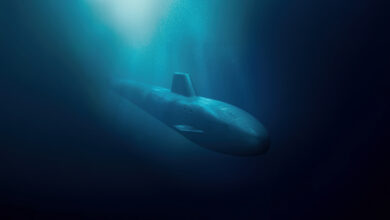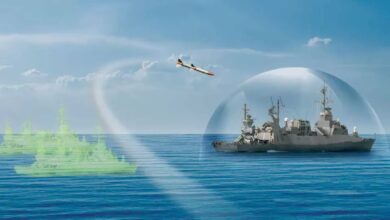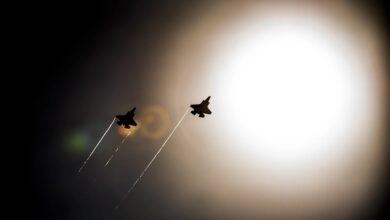The U.S. State Department approved the sale to the United Kingdom of three mini-submarines designed for special forces use, the Defense Security Cooperation Agency said in a release.
The proposed sale includes three SEAL Delivery Vehicle (SDV) Mark 11 Shallow Water Combat Submersibles, along with spares, handling and test equipment, U.S. Government and contractor engineering and training, and other services and support, the Thursday, September 20 release said.
The total estimated program cost is $90 million.
DSCA noted that the U.K. “has a proven track record of successfully deploying predecessor system,” a reference to the Mark 8 Mod 1 SDV, which the U.K. procured for the Special Boat Service, the Royal Navy’s special forces and counter-terrorism unit, which is the maritime sister service of the SAS.
The prime contractor will be Teledyne Brown Engineering, and implementation will require multiple trips to the U.K. by U.S. government and contractor personnel for reviews, training and support.

Shallow Water Combat Submersible
The Shallow Water Combat Submersible is the latest iteration of the SEAL Delivery Vehicle (SDV) mini-submarine, designed for operation by specialist U.S. Navy SEAL special forces teams.
Designated the SDV Mark 11, the SWCS is a battery-powered free-flooding wet submersible platform intended primarily for the clandestine insertion and extraction of special forces. The covert nature of its operational use means that the majority of its capabilities and performance requirements are classified.
The first production SDV, the Mark 7, began experimental service in 1967, and its first mission was off the coast of North Vietnam in June 1972. It was replaced with the Mark 8, which was introduced in the 1980s and subsequently improved. Mark 8 SDVs were used for reconnaissance and demolition during Operation Desert Storm and to secure offshore oil terminals during Operation Iraqi Freedom.
The Mark 8 Mod 1 SDV cruises at 4 knots (7.4 km/h) and has of up to 12 hours endurance, giving it a range of around 18 nautical miles (33 km) carrying a dive team of four along with its pilot and co-pilot.
#SAS2017: Teledyne Brown Engineering Showcasing its Shallow Water Combat Submersible https://t.co/XF9fce9LrI pic.twitter.com/t7wc9jYkIn
— Navy Recognition (@NavyRecognition) April 4, 2017
Under a 2010 contract, Teledyne Brown Engineering developed a full-scale interior mockup of a new SDV submarine and provided a demonstration of the system’s functionality. The company was then awarded a $383 million U.S. Special Operations Command contract in 2011 to design, develop, test, manufacture and sustain the Shallow Water Combat Submersible.
The SWCS was designed to replace the Mark 8 SDV, improving a variety of capabilities including range, speed, payload, navigation and communications, all based on a modern modular subsystem design to ease processor and sensor upgrades.
According to HI Sutton, the new vessel is 6.8 m (22.4 ft) long, 1.5 m (5 feet) wide and high, weighs 10,000 lbs (4,500 kg) and can carry 6 or more sailors.
Teledyne delivered the first SCWS test unit in 2014.

The Shallow Water Combat Submersible is deployable from surface ships as well as from larger submarines able to carry the Dry-Deck Shelter used to launch the vessel.
In May 2014, the U.S. Navy had eight Ohio- and Virginia-class submarines able to carry the Dry-Deck Shelter, with a ninth expected later that year, according to War is Boring.
Also in 2014, the Royal Navy nuclear submarine HMS Astute (S119) was pictured in Gibraltar fitted with a similar deck pod.
Mark 8 SDVs can also be launched and recovered from amphibious carriers and other surface ships or from the shore. They can even be airdropped from a C-130 Hercules or heavy-lift helicopter.












